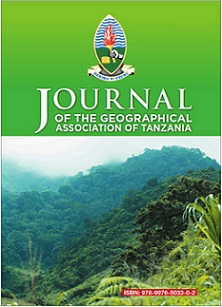Assessment of Sustainable Indoor Water Management in Mkwawa University College of Education, Tanzania
Abstract
Water is an essential natural resource for human life. It is the engine for economic, social, and cultural development. While its availability is influenced by population increase and climate change, its sustainable management is mainly a function of behavioural and technological factors. This paper assesses sustainable indoor water management in Mkwawa University College of Education, Tanzania. It involved a cross-sectional research approach, where the data were collected using questionnaires, field observations, and documentary review methods. Results revealed a sort of unsustainable indoor water management emanating mainly from behavioural and technological factors. Behavioural factors include the use of the bucket for bathing instead of showers (80%) , spending more than 15 minutes in bathing using showers (43%) , and reluctance to report water leakages to responsible authorities (16%) . Technological factors included the lack of water-efficient appliances such as low flow showerheads, toilets, and faucets. It was also found that out of the 769 water appliances observed in the toilets, bathrooms, and laundries, 21% were not working, and 20% were leaking; leading to the use of unsustainable gadgets for the former, and water loss for the latter. Water outage was the main challenge facing students in the College. While behavioural change is recommended to students to minimise water use, the College should install water-efficient appliances and increase water storage facilities for sustainable indoor water management.
Keywords: indoor water management, sustainable, water-efficient appliances


